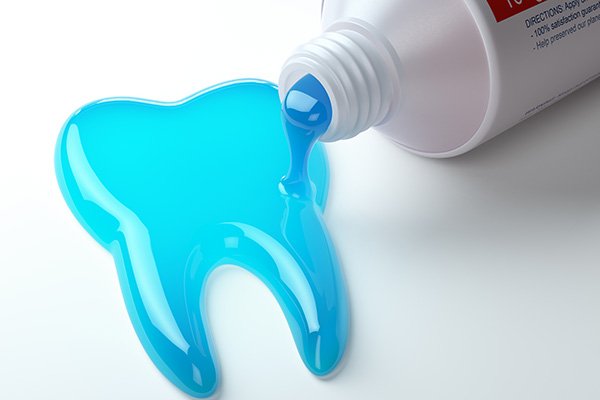 Curious about whether fluoride is important to your oral health? Read on to learn more about how fluoride is used in general dentistry. Fluoride plays an important role in the prevention of cavities, and it can be a safe component of one's daily oral care routine.
Curious about whether fluoride is important to your oral health? Read on to learn more about how fluoride is used in general dentistry. Fluoride plays an important role in the prevention of cavities, and it can be a safe component of one's daily oral care routine.
The purpose of fluoride in general dentistry
Fluoride can seem intimidating when first hearing about it, but it is actually a naturally occurring mineral. In fact, many cities add fluoride into the public drinking water due to the safety of the mineral and the oral health benefits it provides. The following is an overview of how general dentistry can utilize fluoride and the benefits it can offer:
Fluoride strengthens weakened enamel
The primary purpose of fluoride in general dentistry is to strengthen the bonds of teeth enamel. This makes teeth more resistant to attacks from acids in the mouth, which can result when bacteria and food compounds (such as sugar) combine. Fluoride is most often used for preventive purposes. However, if the enamel is weakened, then fluoride may be prescribed to strengthen and remineralize the enamel.
Fluoride is easy to implement into your daily oral care routine
Another reason dentists are so fond of fluoride use is that it is easy and safe for people to implement into their daily oral care routine. It can be added to antibacterial mouthwash that is used daily or in toothpaste. As mentioned, even some public water drinking supplies contain fluoride.
General dentists can provide special fluoride treatments when necessary
Individuals that have healthy teeth can get the recommended amount of fluoride each day by simply choosing a fluoride toothpaste or mouthwash. However, patients that have weakened enamel and are more vulnerable to tooth decay if not promptly treated may need additional fluoride each day, in which case the general dentist may provide a special fluoride treatment to use once or twice per day.
Fluoride vs. alternative treatments
Fluoride is used either to prevent weakened enamel or strengthen enamel to prevent cavities. However, it cannot treat cavities, which occur when the enamel wears away and tiny holes form on teeth. In this case, the patient may need a dental filling or root canal therapy to restore the appearance and health of the tooth.
The ideal candidate for fluoride treatment
Fluoride is safe for most people to use daily as long as it is in the appropriate amounts. People that have worn-down or damaged enamel caused by bacterial attacks may be ideal candidates for fluoride mouthwash that is prescribed by a general dentist specifically for the purpose of strengthening the enamel.
Ready to schedule an appointment?
Here at our general dentistry practice, we help our patients strengthen their teeth and gums through preventive and restorative treatments. We also assist our patients in crafting an at-home daily regimen to reduce the risk of cavities and gum disease. Call or message us today to schedule an appointment.
Request an appointment or call Hardy Oak Family Dentistry at 210-787-1535 for an appointment in our San Antonio office.
Related Posts
Curious about what is considered general dentistry? Read on to learn more. A general dentist can help with the prevention and treatment of oral health concerns such as dental cavities and gum disease. General dentists recommend cleaning and check-up visits once every four to six months to maintain ideal oral hygiene.For most patients, a check-up…
General dentistry helps to keep your mouth healthy with preventative treatments like teeth cleanings. It addresses issues that develop in your mouth. Regardless of how well a person takes care of their teeth, they might become damaged or discolored due to factors like trauma to the face or taking medication like tetracycline antibiotics.Veneers are one…
General dentistry focuses on preventative treatments, but it includes using dental cosmetics like veneers to restore or enhance the appearance of teeth. A veneer is a tooth-shaped restoration that is cemented to the front part of a tooth. It covers up any imperfections, damages, or deformities on that part of the tooth. Veneers started out…
